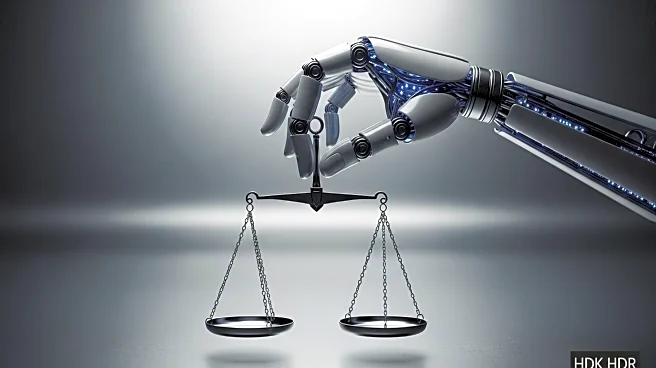What's Happening?
Ray Dalio, founder of Bridgewater Associates, expressed concerns about the impact of artificial intelligence on economic inequality during a podcast interview. While acknowledging AI as a powerful tool, Dalio warned that it could create a divide between a limited number of winners and many losers, exacerbating existing inequalities. He highlighted the potential for AI to replace jobs traditionally held by accountants, doctors, and lawyers, necessitating a rebalancing policy to address the resulting disparities. Dalio suggested that a redistribution policy might be needed, though he cautioned against simply redistributing money without addressing the underlying issues of job displacement and societal fragmentation.
Why It's Important?
Dalio's comments underscore the growing debate around AI's role in the economy and its potential to disrupt traditional employment sectors. As AI technologies advance, they pose a threat to job security for many workers, potentially widening the wealth gap and creating social tensions. The discussion around redistribution policies, such as universal basic income, reflects the need for innovative solutions to mitigate the negative impacts of AI on society. Dalio's perspective adds to the conversation about how policymakers and business leaders can balance technological progress with social equity.
Beyond the Headlines
The ethical implications of AI-driven inequality are significant, as they challenge existing economic models and societal norms. The potential for AI to concentrate wealth and power among a few individuals or companies raises questions about fairness and justice in the digital age. As AI continues to evolve, it will be crucial for stakeholders to consider the long-term effects on social cohesion and develop strategies to ensure inclusive growth.









